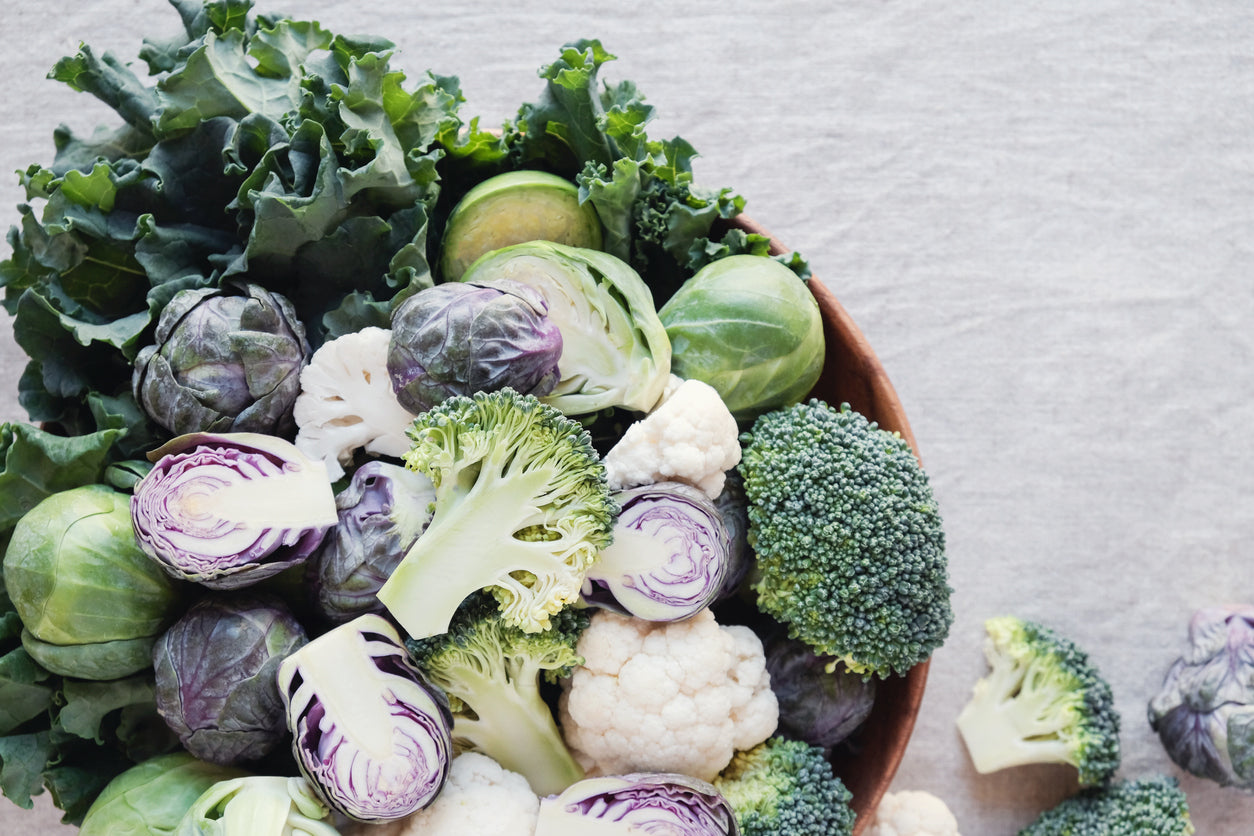I would juice from Mara everyday for probably three years, before we got into strict keto. One day, I remember, her neck was swollen. What happened was that I made her a 30 oz juice of baby kale I’d gotten from our CSA. She drank it, and so I made it for two other days. This was my first experience with the impact of goitrogens.
Cruciferous vegetables, like broccoli, cauliflower, cabbage, and Brussels sprouts, have many health benefits. However, they also contain substances known as goitrogens, which can affect thyroid function, like with Mara’s.
So, how can these vegetables impact the thyroid:
- Goitrogens and Thyroid Function: Goitrogens are substances that can interfere with the way the thyroid uses iodine. Iodine is crucial for the production of thyroid hormones. Goitrogens can inhibit the enzyme thyroid peroxidase, which is involved in thyroid hormone synthesis.
- Impact on Individuals with Thyroid Issues: For most people with healthy thyroid function, consuming cruciferous vegetables as part of a normal diet does not significantly impact thyroid health. The body usually adjusts to goitrogens without much issue. However, in individuals with an existing thyroid disorder, particularly those with iodine deficiency or hypothyroidism, excessive consumption of these vegetables might exacerbate their condition.
Cooking reduces these negative goitrogenic activities of the cruciferous. Steaming, boiling, and fermenting can also decrease levels of goitrogens.
So, what about BrocElite? BrocElite is made from broccoli seeds. Broccoli seeds and broccoli sprouts don’t have the goitrogens that mature broccoli has. And broccoli seeds and broccoli sprouts do not have the same issues with salycilates, the chemical the aspirin is derived from.
So, overall, keep eating your broccoli. And keep taking your BrocElite!









0 Comment